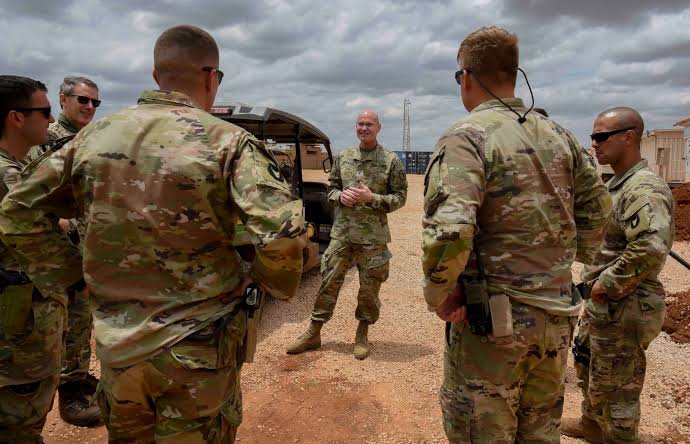Facebook Twitter (X) Instagram Somali Magazine - People's Magazine
The future of the U.S. military presence in Somalia appears uncertain as President-elect Donald Trump prepares for his second term. Analysts suggest that Trump may revisit his decision from his first term, which involved the withdrawal of all U.S. troops from Somalia. This policy change could lead to broader adjustments in U.S. military operations across Africa.
U.S. Forces in Somalia: A Brief Overview
In 2022, President Joe Biden reversed Trump’s 2020 withdrawal order by redeploying U.S. forces to Somalia in an advisory role. This decision was intended to counter al-Shabab, a militant group linked to al-Qaeda. The U.S. military has since focused on training and advising elite Somali units such as Danab, which are tasked with combating the insurgency.
Marine Corps Gen. Michael Langley, head of U.S. Africa Command (AFRICOM), recently emphasized the strategic importance of maintaining a presence in Somalia. However, concerns about corruption within Somali forces and the lack of significant progress in stabilizing the region have fueled debates about the mission’s effectiveness.
Trump’s Previous Stance on AFRICOM
During his first term, Trump questioned the value of U.S. military engagements in Africa, including Somalia. Former Defense Secretary Mark Esper, in his memoir A Sacred Oath, revealed that Trump aimed to minimize U.S. involvement on the continent. “The bottom line was that Trump wanted out of Africa completely, and Somalia now seemed to be the starting point,” Esper wrote.
Trump’s skepticism about AFRICOM’s relevance aligns with his broader strategy of prioritizing China as the primary focus of U.S. military and economic efforts. Elbridge Colby, Trump’s nominee for undersecretary of defense for policy, has advocated reallocating resources from lower-priority missions in Africa to counter China’s influence in the Pacific.
Calls for a Policy Overhaul
J. Peter Pham, former U.S. special envoy to Africa’s Sahel region, suggests that Trump’s return to the White House could prompt a reassessment of the U.S. approach in Somalia. “At the very least, a complete blank slate review of U.S. policy toward the Somali failed state should be undertaken before investing any more American resources,” Pham stated.
Pham argued that the U.S. lacks an effective partner in Somalia and that the country’s issues could be addressed from offshore bases without risking American lives. His comments reflect growing concerns about the corruption and inefficiency of Somali forces, including elite units like Danab.
The Biden Administration’s Strategy
President Biden’s decision to redeploy U.S. forces to Somalia came in response to criticism that Trump’s withdrawal allowed al-Shabab to gain ground. Former AFRICOM commander Gen. Stephen Townsend described the rotational deployment model as “commuting to work,” which he argued undermined the mission’s effectiveness.
While Biden’s strategy aimed to stabilize Somalia, questions remain about its long-term viability. Critics argue that al-Shabab’s resilience and the lack of substantial progress in governance and security highlight the limitations of the current approach.
Broader Implications for U.S. Policy in Africa
The potential withdrawal of U.S. forces from Somalia could have ripple effects across the continent. AFRICOM has raised alarms about the spread of extremist groups in western Africa, though these groups have yet to pose a direct threat to the U.S. homeland.
Additionally, China’s growing influence in Africa presents a new dimension to U.S. policy considerations. Trump’s administration is expected to place greater emphasis on countering China’s economic and strategic advances in the region.
Future of U.S. Engagement in Somalia
The debate over U.S. involvement in Somalia reflects broader questions about the priorities and scope of AFRICOM’s mission. As Trump prepares to take office, his administration is likely to scrutinize the cost-benefit dynamics of military engagements in Africa.
Experts caution that any policy shifts should carefully weigh the risks of reduced engagement against the potential benefits of reallocating resources to other strategic areas. As the situation in Somalia evolves, the U.S. must strike a balance between addressing immediate security concerns and pursuing broader geopolitical objectives.

